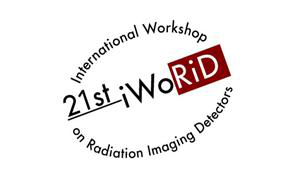Speaker
Description
We report on the design and measurement results of proton tracking system built with the use of single photon counting hybrid pixel array detector (HPAD). The detector used is Ultra Fast X-Ray Chip (UFXC32k) which is a matrix of 128 x 256 pixels, each 75 um pitch, characterized by very high 50 kfps frame rate. Such features allow it to be used in proton tracking system where high spatial resolution as well as capability to separate single proton events is required.
The proton tracking system was tested in November 2018 at Fermilab Test Beam Facility (FTBF) with 120 GeV proton beam generated by linear accelerator. The detection setup consisted of three layers of different detectors: Low Gain Avalanche Diode (LGAD), UFXC32k-based single layer detection system, and current FTBF proton tracker. The first layer, LGAD, is 4-channel high-time resolution detector that produces a trigger to both remaining setups. The trigger signal is used by UFXC32k-based detector to pick up a frame from 50 kfps data stream. The exemplary result of collective image of acquired frames is shown in the figure below. The visible shape of LGAD channels as well as good separation between them proves that the system successfully isolates protons indicated by LGAD detector.
For additional verification, proton transition points registered by UFXC32-based system were compared to the ones returned by the current FTBF tracker. The results of the data analysis will be presented, together with the description of the hardware and software architecture of the proton tracking system.
